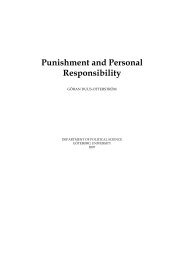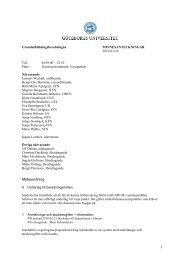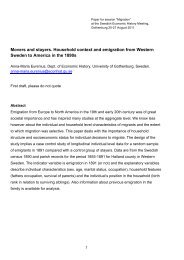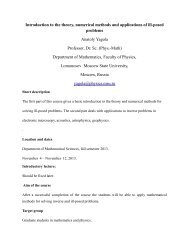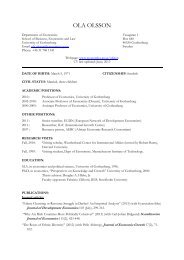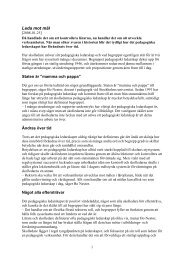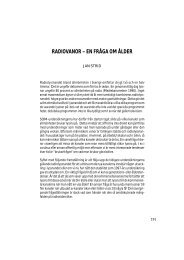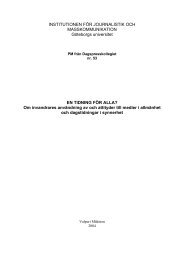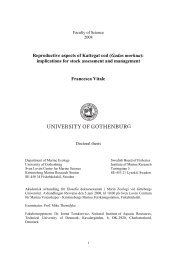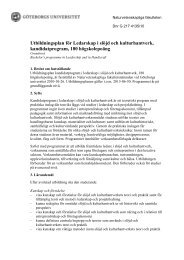Equal Opportunities Work - Theories about Practice
Equal Opportunities Work - Theories about Practice
Equal Opportunities Work - Theories about Practice
Create successful ePaper yourself
Turn your PDF publications into a flip-book with our unique Google optimized e-Paper software.
particularly problematic, because such harassment takes place in situations<br />
where the parties involved have highly differing opinions regarding what is<br />
going on along the spectrum ranging from kind, encouraging attitudes to<br />
sexually offensive behavior. How are matters decided in a court of law when<br />
one person's word stands against another's?<br />
The preparatory work for the <strong>Equal</strong> <strong>Opportunities</strong> Act indicates that it is to<br />
be up to the person being subjected to the behavior to decide whether or not it<br />
is acceptable, and to define what is offensive. Are we to read this as meaning<br />
that the way one human being approaches another may only be defined as<br />
sexual harassment if and only if the one party goes on trying to approach the<br />
other after an initial rejection? And if so, what are we to do <strong>about</strong> the very<br />
common reaction among people who are subjected to such behavior: feelings<br />
of guilt and shame and the concomitant silence?<br />
Although the legal complexities of these issues are beyond the scope of this<br />
booklet, let us make a cursory examination of the relationship between the law<br />
and equal opportunities work. Of course, pursuing equal opportunities work at<br />
one's organization includes ensuring that the <strong>Equal</strong> <strong>Opportunities</strong> Act is<br />
complied with. But that is not sufficient. We must also see the legislation as an<br />
opening to work with all sex and gender related problems in the work<br />
environment, in the broadest and deepest sense of the terms. If an unwelcome<br />
approach cannot be regarded as a violation of the law, does that necessarily<br />
make it unproblematic in terms of equality of opportunity? Of course not.<br />
Another intention stated in the preliminary work for the legislation is that<br />
the Act is to safeguard individual integrity at work and in the workplace.<br />
Although sexually offensive behavior that takes place outside the workplace is<br />
not criminaltzed under the <strong>Equal</strong> <strong>Opportunities</strong> Act, it may be punishable by<br />
law pursuant to the Penal Code. If a teacher is at a party with his or her<br />
students, is he or she on duty? If he or she makes a sexual approach to a<br />
student, is that criminal, if not as a violation of the <strong>Equal</strong> <strong>Opportunities</strong> Act<br />
then perhaps under the heading of "sexual molestation"? And if it is not<br />
punishable by law at all, what can we do <strong>about</strong> it in our capacity as equal<br />
opportunities officials at our places of work?<br />
<strong>Work</strong>ing with sexual harassment must mean more than ensuring that the<br />
<strong>Equal</strong> <strong>Opportunities</strong> Act is complied with. In my view, it is vital that we not<br />
become fixated with the idea of filing formal reports or making informal<br />
verbal ones, or with wondering <strong>about</strong> what punishment might fit the offense,<br />
or with identifying the perpetrator. All these things may, of course, be<br />
necessary, but truly comprehensive equal opportunities work must focus on<br />
39




